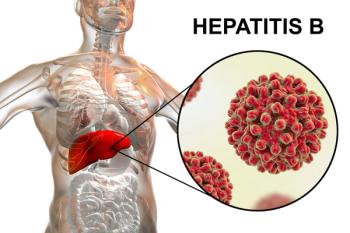
Earlier Intervention Can Decrease Hospitalizations for COVID-19
Implementing mask mandates even days earlier can cause a decrease in the number of cumulative hospitalizations due to COVID-19.
The overall impact of a mask mandate as a public health tool is dependent on both timing and the percent of increased masking due to the mandate, according to research results presented at IDWeek 2022, held October 19 through 23 in Washington, D.C.
During the COVID-19 pandemic, mask mandates were used to mitigate the spread of the virus. However, it is still unclear how to optimize their impact in the caseof certain population-level behavior changes due to rising case counts.
Researchers out of St. Louis, Missouri used aggregated hospitalization and death data and fitted a real-life model to estimate the changes in transmission after the mask mandate on July 3, 2020. In particular, researchers sought to evaluate how earlier or later implementation of this mandate would have impacted transmission of SARS-CoV-2 and severe COVID-19 outcomes locally.
Researchers then created scenarios in which 10%, 25%, and 50% of the changes were attributed to the mandate and where the mandate was put in place 3 or 7 days earlier, or 7 or 14 days later.
When 50% of masking was due to the mandate, implementing a mandate7 days earlier was associated with a reduction from 12,685 cumulative hospitalizations to 12,294 by September 30. However, a 14-day delay of the mandate found an increase to 13,277 hospitalizations.
Trends were similar across the 10%, 25%, and 50% changes, albeit in different magnitudes.
“Depending on whether 10%, 25%, or 50% of increased masking was due to the mandate, implementing the mandate 1 week early was associated with a return to baseline (June 26) hospital census 1–7 days earlier, while delaying the mandate by 2 weeks led to a 2–12-day delay in return to baseline,” the researchers noted.
"Impact of a mask mandate depends on both timing and percent of increased masking that is attributed to the mandate,” the investigators concluded.“Implementing a mask date even a few days earlier can result in fewer hospitalizations and an earlier return to baseline.”
Locally tailored models are an “essential” tool for estimating the impact of interventions and local public health response.
Reference
1. Rohatgi KW, Fox B, Tram KH, Geng E, Mody A.Impact of mask mandate timing on community transmission of SARS-CoV-2 in the St. Louis metropolitan area. Presented at: IDWeek 2022; October 19-23, 2022; Washington, D.C. Poster 1906.
Newsletter
Pharmacy practice is always changing. Stay ahead of the curve with the Drug Topics newsletter and get the latest drug information, industry trends, and patient care tips.























